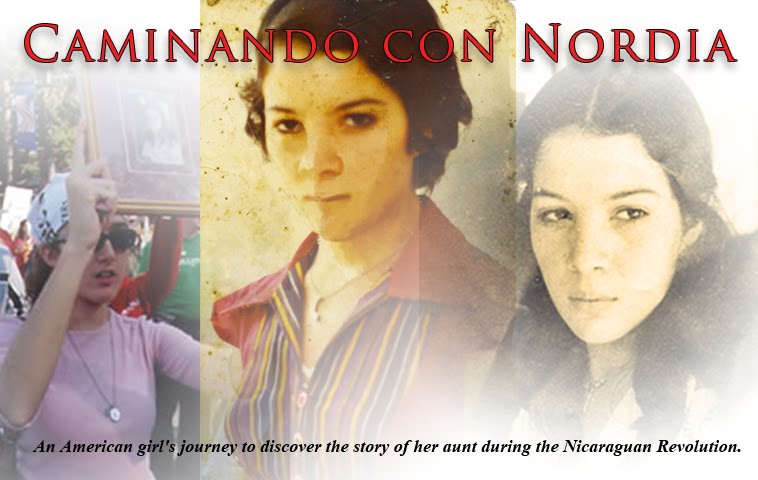Thankfully, there's an internet out there that helps piece together some of life's more google-able mysteries. What I discovered was that this sign promoted a Southern Californian Nicaraguan festival, featuring both Carlos Mejía Godoy and Luis Enrique Mejía Godoy. The musical voice behind Nicaragua's uprising was going to be in my neighborhood, in the nearby City of Industry, to be exact.
Unfortunately the joy of this opportunity was quickly marred by sharp disappointment. The event had already occurred in May. The lonely street sign was merely a remnant of the past. The promise of upcoming adventure faded into nothing more than a ghost. How could this have gone unseen? How was I kept out of the loop? Where was their outreach? Why weren't the promoters recruiting every and all Nicaraguans of this city? How could I have never once heard of this festival?
My only lingering hope is that I can catch a future festival. Searching their website reveals that this was not a singular gathering. Previous events are scattered and don't show a clear pattern to monitor. I must remain alert for rumbles of the next opportunity. It is cruel to consider how far away this might be. There is no guarantee that Carlos Mejía Godoy will return either. I am forced to wait with anticipation.
Another random uncovering came again from the benefit of the world wide web, this time in the form of a book. I stumbled upon a guide to Nicaraguan Spanish, filled with the unique words and phrases that give this country its character. Since it boasted positive reviews from native Nicaraguans, I decided to lend it my trust and acquire a copy for myself. I have yet to share it with my family to get their perspective, but I can already see its potential to help me. There are several words in here that I have slowly struggled to understand along my way. This would have made things easier for me years ago!
One small, simple word that keeps popping up is "chapas" which are earrings. The first time I heard it was from my cousin's 3-year-old daughter last summer in Estelí. I was so confused what she was trying to say to me. I was dumbfounded. I felt stupid that my Spanish wasn't good enough to communicate with a child. I needed a translator. When I heard this word again in Susan Meiselas documentary, I jumped with excitement upon the recognition. It was a subtle affirmation of my experience and a confirmation of the validity of this word. Seeing it resurface in this book brings to light both memories. If only I had this guide sooner!
The book includes other words that my relatives struggled to explain to me without as colorful of a backdrop as the earring situation. Some words I eventually figured out on my own, while others took a bit of gesturing and explanation. There's even a small section devoted to the "vos" tense and conjugation, which I have only been able to pathetically mimic and not yet confidently master. Various sayings I never realized were Nicaraguan in nature are included as well. As I read them I can recall the voices of my family. The sights and sounds of my past come together to layer a framework and understanding.
Aside from highlighting my personal experience with the Nicaraguan colloquialism, this book offers me bearings to navigate through the phrases I'm encountering in my research. Words that confused me in the songs of Carlos Mejía Godoy now have context and meaning. This will be a helpful tool in reviewing his lyrics more deeply. Perhaps the next time he visits Los Angeles, this chavala will be better equipped to listen to his music and fully appreciate his songs. Maybe I wasn't meant to hear him until I beefed up my Spanish comprehension. Now that I have this tool, it is time to ponerme las pillas and get back to work. Even these little steps should help me in the grand scheme of things.
De grano en grano, se llena la gallina el gran buche.


A falta de pan buenas son tortas dice tu papa y no es nicaraguense
ReplyDeleteReally? So the book is teaching me incorrectly! I need to go over it with you so you can tell me what's accurate!
ReplyDeleteI am stuck on/empathetic towards what you must have felt upon realizing the festival had already passed. As the Nicas say, IDEAY?? MALA ONDA!
ReplyDelete